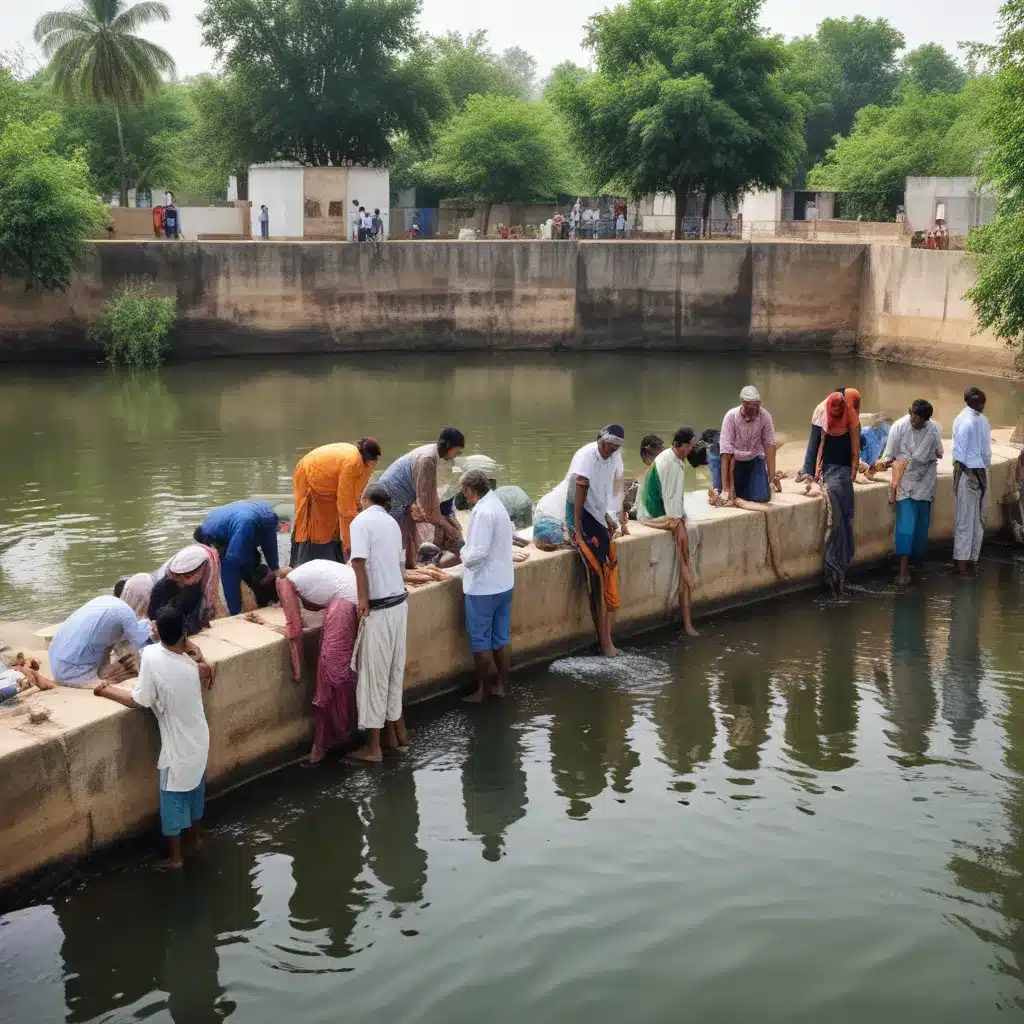
The Urgent Need for Water Quality Improvement in Hyderabad
Hyderabad, the bustling capital of Telangana, is grappling with a pressing water quality crisis that threatens the health and well-being of its residents. As one of India’s fastest-growing cities, Hyderabad has experienced rapid urbanization and industrialization, placing immense strain on its water resources. The city’s water quality has deteriorated significantly, with alarming levels of contaminants and pollutants found in its surface and groundwater sources.
Recent studies have highlighted the severity of the issue, with high concentrations of heavy metals, pesticides, and microbial pathogens detected in the city’s water supply. This has led to an increase in waterborne diseases, such as diarrhea, typhoid, and cholera, disproportionately affecting the city’s vulnerable populations, including those living in low-income communities and informal settlements.
Collaborative Efforts for Sustainable Water Management
Addressing Hyderabad’s water quality challenge requires a multi-stakeholder approach, one that fosters collaboration between civil society organizations, government agencies, and the private sector. By leveraging the expertise and resources of these diverse stakeholders, sustainable solutions can be developed and implemented to improve water quality and safeguard public health.
Empowering Civil Society Organizations
Civil society organizations (CSOs) play a crucial role in advocating for water quality improvements and engaging with local communities. These organizations have a deep understanding of the challenges faced by residents and can provide valuable insights to policymakers and government agencies. By partnering with CSOs, the government can gain a better understanding of the community’s needs and develop targeted interventions that address the root causes of water quality issues.
One successful example of this collaboration is the work of the Hyderabad-based NGO, WATER (Water, Advocacy, and Training for Environmental Resilience). WATER has actively engaged with local communities, educating residents on water conservation, sanitation practices, and the importance of water quality. The organization has also worked closely with the Hyderabad Metropolitan Water Supply and Sewerage Board (HMWSSB) to identify and address water quality concerns in underserved areas.
Strengthening Government Initiatives
Government agencies play a critical role in setting and enforcing water quality standards, as well as implementing infrastructure projects to improve water treatment and distribution. In Hyderabad, the HMWSSB has made significant strides in upgrading the city’s water treatment plants and expanding the sewerage network. However, challenges persist, particularly in ensuring equitable access to safe water and effective wastewater management.
To address these issues, the government can leverage the expertise and resources of civil society organizations. By fostering collaborative partnerships, the HMWSSB can gain valuable insights into community-level challenges and develop tailored solutions that meet the needs of all residents. This could include initiatives such as community-based water quality monitoring, the establishment of water user groups, and the integration of traditional water conservation practices.
Engaging the Private Sector
The private sector also has an important role to play in improving Hyderabad’s water quality. Companies operating in the city can contribute to sustainable water management through investments in water-efficient technologies, wastewater treatment facilities, and innovative water recycling and reuse solutions. By aligning their business practices with the city’s water quality goals, the private sector can serve as a valuable partner in the quest for a more resilient and equitable water future.
One example of this collaboration is the partnership between HMWSSB and a leading water technology company to pilot a decentralized wastewater treatment system in a low-income community. This initiative has not only improved the quality of water discharged into the environment but has also provided employment opportunities for local residents in the operation and maintenance of the system.
Cultivating a Culture of Water Stewardship
Ultimately, addressing Hyderabad’s water quality issues requires a holistic approach that engages all stakeholders, from government agencies and civil society organizations to the private sector and local communities. By fostering a culture of water stewardship and collaboration, the city can harness the collective knowledge, resources, and expertise necessary to develop and implement sustainable water management solutions.
Key strategies for cultivating this collaborative approach include:
- Strengthening Dialogue and Information-Sharing: Establishing regular forums and platforms for open dialogue between government agencies, CSOs, and the private sector to share best practices, identify challenges, and co-create solutions.
- Empowering Community Participation: Engaging local residents, especially those in underserved communities, in the decision-making process and equipping them with the knowledge and tools to monitor and advocate for water quality improvements.
- Promoting Innovative Financing Mechanisms: Exploring innovative financing models, such as public-private partnerships and community-based funding schemes, to support water infrastructure development and maintenance.
- Enhancing Transparency and Accountability: Ensuring transparency in water quality data, decision-making processes, and the allocation of resources, thereby fostering trust and accountability among all stakeholders.
- Scaling Successful Pilot Initiatives: Identifying and scaling up successful pilot projects that demonstrate the effectiveness of collaborative approaches in addressing water quality challenges.
By embracing these strategies, Hyderabad can build a more resilient and equitable water future, where all residents have access to safe and reliable water resources. Through the collective efforts of government agencies, civil society organizations, and the private sector, the city can overcome its water quality crisis and serve as a model for sustainable water management in India and beyond.
Conclusion: A Call for Collaborative Action
Hyderabad’s water quality crisis is a pressing challenge that requires a collaborative, multi-stakeholder approach. By empowering civil society organizations, strengthening government initiatives, and engaging the private sector, the city can develop and implement sustainable solutions that improve water quality, safeguard public health, and promote environmental resilience. Through this collaborative effort, Hyderabad can become a shining example of how partnership and collective action can transform a city’s water future.
To learn more about the Joint Action for Water initiative and its work in promoting sustainable water management, please visit https://jointactionforwater.org/.

